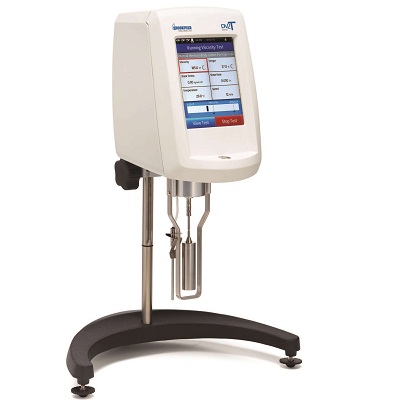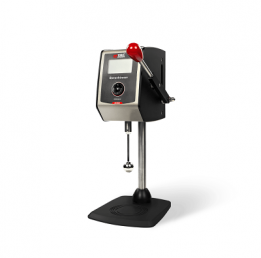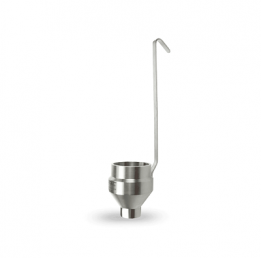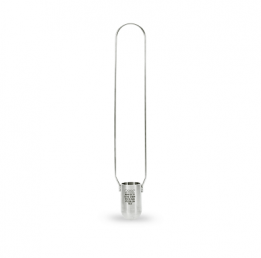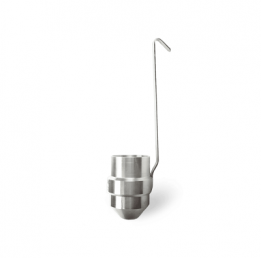The DV2T Viscometer features a 5-inch color display to guide users through test creation and data gathering for fast and easy viscosity measurements. The DV2T also offers powerful programming capabilities and results analysis including data averaging and QC limits with alarms.
User instructions with multi-step test protocols can be created using the Program Generator Software and uploaded to the DV2T through a USB Flash Drive (both included with instrument). Test Data can be recorded directly on a local printer or sent to a PC. Additional automated control and data collection can be achieved with optional RheocalcT softwar
FEATURES AND BENEFITS
- 5-inch full color, touch screen display supports multiple languages
- Displayed info includes: viscosity (cP/mP·s), temperature (°C/°F), shear rate/stress, % torque, spindle/speed, step program status
- Enhanced security provides customizable user levels and password access.
- Built-In options include timed tests, data averaging, programmable QC limits/alarms, customizable speed/spindle lists, on screen data comparison
- Auto range shows maximum viscosity measured with any spindle/speed combination
- USB PC interface provides optional computer control and automatic data gathering capability Download custom test programs with included PG Flash software

- Front-facing bubble level for convenient viewing
- Built-in temperature probe
- Accuracy of ±1.0% of range with displayed test data
- Repeatability of ±0.2%
- 17025 Calibration (Optional)
- NIST traceable viscosity standards available
- Also available: Magnetic coupling system, durable ball bearing suspension system, quick action lab stand and RheocalcT software.
Each of our standard Laboratory Viscometers/ Rheometers are supplied with an internal spring used to calculate the viscosity of a material. These springs have different measuring capabilities:
LV is for low viscosity materials and can measure the thinnest materials. Typical examples include inks, oils, and solvents.
RV is for medium viscosity materials than those measured with an LV torque. Typical examples include creams, food, and paints.
HA is for higher viscosity materials than those measured with an RV torque. Typical examples include gels, chocolate and epoxies.
HB is for even higher viscosity materials than those measured with an HA torque spring. Typical examples include asphalt, caulking compounds, and molasses.
Additional special springs are also available upon request.
